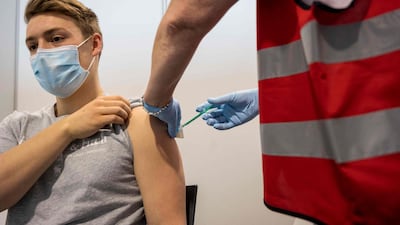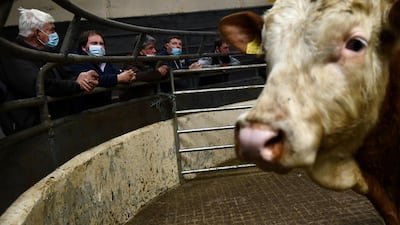Two shots of a Covid vaccine work almost as well against the Indian variant as they do against the dominant UK strain of the virus, a new study published shows.
Britain’s Health Secretary Matt Hancock called the data groundbreaking and expressed hope stage 4 of England’s Covid roadmap could proceed without hitch on June 21.
According to figures from Public Health England, 22,071,497 people in the UK had been fully vaccinated against the virus on May 21.
With these figures showing that the UK is delivering a seven-day average of 337,000 second doses, many millions more Britons are on track to receive dose number two by June 21, when more Covid restrictions will be lifted.
The PHE research found the Pfizer-BioNTech vaccine was 88 per cent effective against symptomatic disease from the B.1.617.2 Indian, or "double mutant", variant two weeks after the second dose.
That compared with 93 per cent effectiveness against the B.1.1.7, or Kent strain, which is Britain’s dominant Covid variant.
Two doses of AstraZeneca’s vaccine were 60 per cent effective against symptomatic disease from the Indian variant compared with 66 per cent effectiveness against the Kent variant, PHE said.
Britain has rushed out Europe’s fastest vaccination programme but it has faced a new challenge from the spread of the variant first found in India.
Data published on Saturday showed new coronavirus cases reported in Britain rose by 10.5 per cent in the seven days to May 22, although they were still a fraction of levels seen earlier this year.
The Indian variant itself represents a fraction of these cases, but data from genome sequencers the Wellcome Sanger Institute showed it is accelerating exponentially in the UK.
With vaccines now shown to be effective against the double mutant, the race between vaccine and variant is well and truly on. Mr Hancock said it further proved getting both doses of the vaccine was vital.
UK Prime Minister Boris Johnson earlier in May ordered an acceleration of remaining second doses to the over-50s and people who are clinically vulnerable.
PHE said one dose of both vaccines was 33 per cent effective against symptomatic disease from the Indian variant B.1.617.2 after three weeks, lower than its 50 per cent effectiveness against the Kent variant B.1.1.7.
Concern about rising cases in Britain of the variant first found in India prompted Germany to say on Friday that anyone entering the country from the United Kingdom would have to quarantine for two weeks on arrival.









